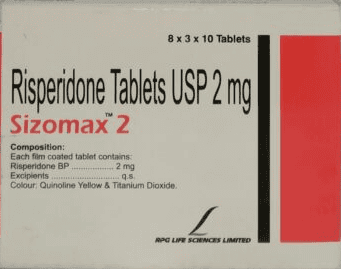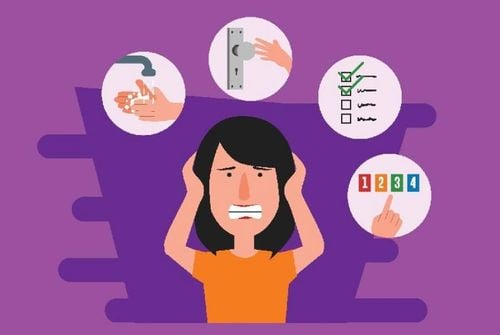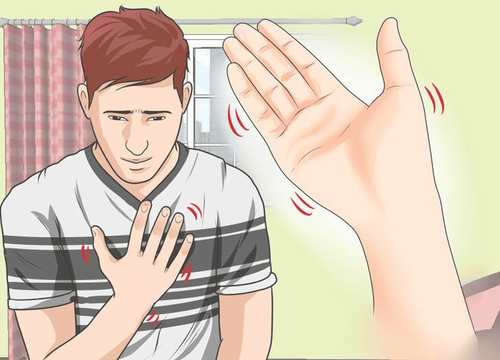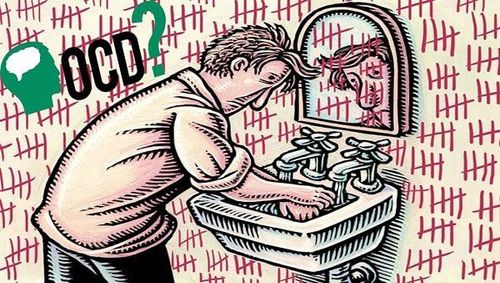This is an automatically translated article.
Multiple personality disorder is inherently a mental illness. When sick, patients often forget who they are and have opposing personalities such as smiling, crying later, or being impatient or gentle. Personality disorder is a fairly common disease in today's society, especially in which many people have the disease but don't know it.
1. Learn about multiple personality disorder
People with multiple personality disorder almost live in isolation from the world around them, they lose connection with their own thoughts, memories, feelings, actions or personality. When suffering from multiple personalities, in each person they often have a lot of different personalities such as: being happy can be sad, crying can laugh, or be angry or become happy...
When I first discovered the disease, they often only realize that they have 2-3 personalities, but in fact, when they are examined by a doctor, they can find an average of 13-15 personalities. There are also cases of more than 100 personalities. This is also the reason why it is so difficult to determine the authenticity of multiple personality disorder.
Currently, the disease is considered to be more likely to occur in women than in men. People with multiple personality disorder may have experienced some trauma in the past, experiencing feelings of pain, violence, or stress.
2. How do I know I am a multi-personality person?
Many people often can't recognize their own change in personality, but it is often not until the next person is exposed to really realize the disease. Some typical signs of multiple personality disorder are:
Formation of multiple personalities: The patient usually has at least 2 personalities, and the number of personalities is often multiplied as the disease progresses. Gaps in memory appear: Patients sometimes cannot remember their own actions and words when in another personality. In their thoughts sometimes there are dark spaces in their memories and think they slept during those times. Forgetting personal information: Forgetting your name, address, and job is one of the common symptoms of the disease. When this happens, patients often face many difficulties in life. In addition to the above main manifestations, people with personality disorders may also show many different signs in each being such as:
Depression Wanting to commit suicide Eating disorder Feeling compulsive Constantly changing emotions Substance abuse Auditory and visual hallucinations Anxiety, panic attacks, and phobias Sleep disturbances Even in some cases, symptoms of headaches, memory loss , loss of perception of time, lethargy...
3. Measures to treat multiple personality disorder
Depending on age, gender, medical condition, and conditions, each patient will be consulted by a doctor for different methods to treat personality disorders.
Some common measures to treat personality disorders can be mentioned as:
3.1. Psychotherapy Psychotherapy is the mainstay of treatment for personality disorders. During psychotherapy, your doctor and patient will talk together about your problem, your emotional state, your mood, your thoughts, and your behavior. Thereby, the patient will learn how to regulate emotions and have ways to behave in each problem.
The use of psychotherapeutic methods can be applied to the patient or to the relationships surrounding the patient. The process of treatment will take place slowly but extremely effective for the patient's health.
3.2. Medication Use There are no medications specifically approved by the U.S. Food and Drug Administration (FDA) to treat personality disorders. However, certain psychiatric medications can help treat various personality disorder symptoms. For example: antidepressants, mood stabilizers, antipsychotics, anti-anxiety drugs...
2 treatments on the patient can be self-treated at home, however with some where the patient is required to be hospitalized for psychiatric care. This is usually only recommended when patients are unable to take care of themselves properly or when they are in immediate danger of harming themselves or others.
After receiving stable treatment in the hospital, the doctor may recommend continuing monitoring in the hospital for a while or discharge the patient from the hospital and re-examine according to the schedule.
Like many other diseases, if not treated, personality disorders can bring great losses to the patient's health such as loss of work productivity, impact on those around, substance abuse irritation, self-destruction, and even suicide. Therefore, when there are abnormal signs in terms of personality, the patient should go to specialized medical facilities for timely examination and treatment by specialized doctors.
For more information about the disease, customers can follow the website of Vinmec International General Hospital to get more information about health, nutrition, beauty to protect the health of themselves and their loved ones. love in the family.
Please dial HOTLINE for more information or register for an appointment HERE. Download MyVinmec app to make appointments faster and to manage your bookings easily.













